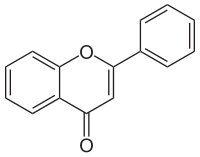
Photo from wikipedia
For many years, it has been clear that a Western diet rich in saturated fats and sugars promotes an inflammatory environment predisposing a person to chronic cardiometabolic diseases. In parallel,… Click to show full abstract
For many years, it has been clear that a Western diet rich in saturated fats and sugars promotes an inflammatory environment predisposing a person to chronic cardiometabolic diseases. In parallel, the emergence of ketogenic diets, deprived of carbohydrates and promoting the synthesis of ketone bodies imitating the metabolic effects of fasting, has been shown to provide a possible nutritional solution to alleviating diseases triggered by an inflammatory environment. The main ketone body, β-hydroxybutyrate (BHB), acts as an alternative fuel, and also as a substrate for a novel histone post-translational modification, β-hydroxybutyrylation. β-hydroxybutyrylation influences the state of chromatin architecture and promotes the transcription of multiple genes. BHB has also been shown to modulate inflammation in chronic diseases. In this review, we discuss, in the pathological context of cardiovascular risks, the current understanding of how ketone bodies, or a ketogenic diet, are able to modulate, trigger, or inhibit inflammation and how the epigenome and chromatin remodeling may be a key contributor.
Journal Title: International Journal of Molecular Sciences
Year Published: 2022
Link to full text (if available)
Share on Social Media: Sign Up to like & get
recommendations!